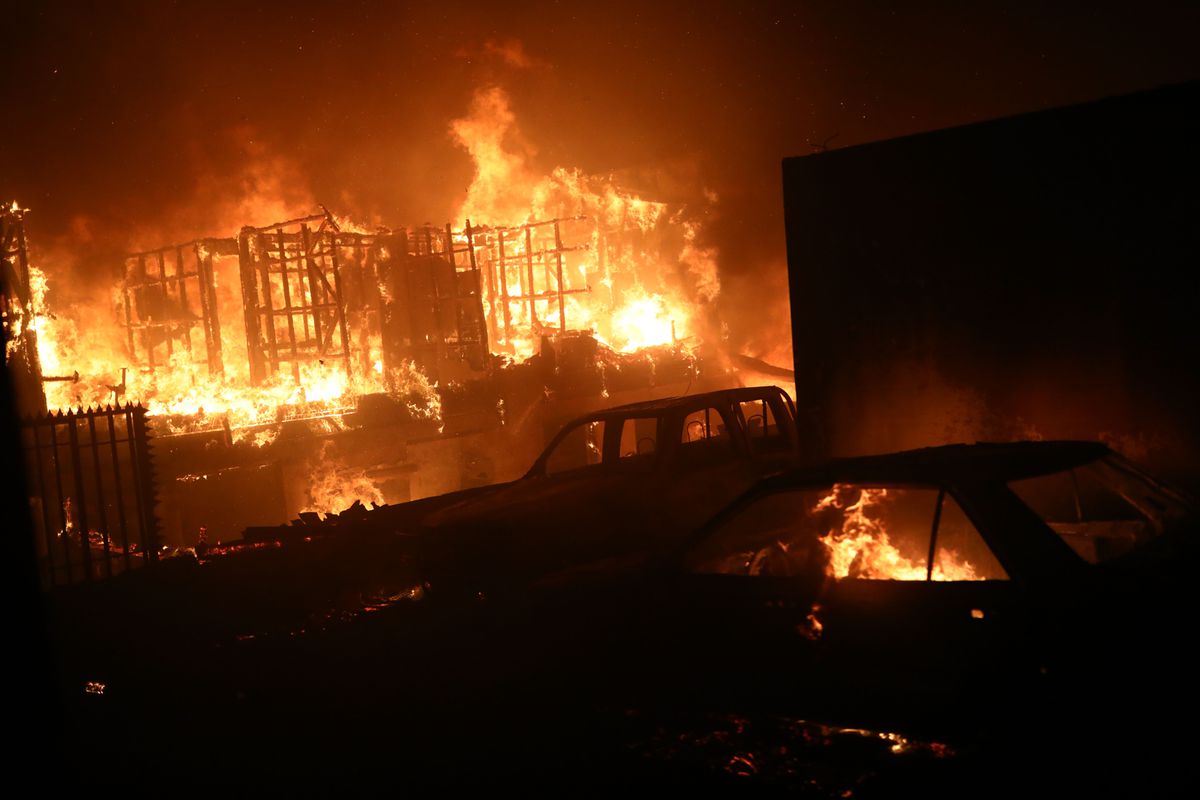The president of Chile, Gabriel Boric, delivers his first speech after taking office, on March 12. Alberto Valdes (EFE)
Living Chile at a time like the one it is living now is living politics in motion, it is feeling, through the citizenry, the urgent need for profound change.
A change that is debated between, as the leaders of some political parties commented, the cultural cancellation of political forces that were part of the concertation, and of more conservative governments, and a new political sphere that aspires to mainstream progressive policies, within a government that has two coalitions, something without precedent in Chile.
To do this, President Gabriel Boric has had to unite in his government political forces with different programmatic ideas in which consensus is essential.
Social discontent catalyzed the 2019 protests, the trigger was the rise in prices of public transport, there were deaths, injuries and people imprisoned.
According to Human Rights Watch, the police used excessive force in response to large demonstrations, some of them violent.
According to this organization for the defense of human rights, although measures have been taken in Chile to reform the Police, more changes must still be made to prevent misconduct and strengthen disciplinary supervision and strengthen accountability.
The
social explosion
, which lasted until well into 2020, revealed a discontent that evidenced, above all, the agony of a neoliberal political model.
The protests led to a national plebiscite that took place in October 2020, giving rise to the Constitutional Convention, which is the constituent body in charge of drafting a new Constitution for the country, and which must be approved or rejected through a referendum. this year, in 2022.
This is an unprecedented political process in Chile, since through the consultation the citizens decided to carry out a new Constitution and that it be elaborated through a convention in which all the constituents were elected by direct vote.
Gender parity in the formation of the Constituent Convention has been one of its significant features.
In addition, the ten native peoples of the country are represented in it.
Within it there is a majority of independent participants.
All these characteristics put on the table the rejection of traditional political representatives carrying out the new constitution.
It is not trivial to remember that the last one had been originally drafted by the Pinochet dictatorship,
and on that text the later democratic governments and the Parliament made some modifications.
The interest of the citizens is reflected in the fact that the participation in the plebiscite, in absolute numbers, was the highest in history, for the approval of the Constitution 78.27% voted in favor and in favor of the constitutional convention in 1978, 99%.
This constituent process is fascinating, first because it articulates a different relationship between social actors and political parties;
and, second, for all the challenges ahead.
Despite the fact that the process began with great force, it is now more eroded by the difficulties it is encountering along the way, among which are criticism from right-wing sectors or political fragmentation among the collectives that make up the conventional ones, required to reach two thirds for each constitutional norm.
What are the key issues?
Plurinationality, political and economic decentralization, reform of Congress and the Senate, equality, recognition of diversity, environment, and fair and equitable access to common goods, among others.
The policy exercised from the Government follows its course at the same time as the constituent its own, the first cannot intervene in the second.
Both in a
sui generis way
They live together facing great future challenges.
The new government is born in a new context, in no way can it be positioned with the authoritarian left, despite the fears and ghosts stirred by the Chilean and Latin American right during the campaign.
It is a government that has been established within the framework of a progressive left, seeking consensus between different forces whose main objective is to change the neoliberal political system and eliminate the enormous inequalities that exist in Chilean society.
It is worth seeing from neighborhood to neighborhood separated only by two or three blocks.
The measures he proposes are close to a social democracy that can lead political change in Latin America and condition the next electoral appointments, as in Colombia and Brazil.
In the two weeks that the new Government has been in office, the president, among other measures, has adhered to the Escazú agreement for the protection of the environment and has signed the new Water Code, which is a regulation, as he himself announced, that regulates the use of water resources, which will prioritize access to human consumption and allow a fair water transition and sustainable use of water.
Let's not forget that Chile has been in water scarcity for some 13 years, the 1980 Constitution established private ownership of water, something that subsequent governments did not change.
Similarly, in a recent interview the president has already announced economic measures for the inclusive reactivation of the most vulnerable sectors due to the crisis derived from the social outbreak, the pandemic and inflation.
The challenges are not few: the need for a tax reform, the increase in the interprofessional minimum wage, a new pension model, a national care plan, extensive abortion in more than three cases, the management of migratory flows, recent in the country, a possible amnesty law for the prisoners of the social outbreak and the conflict of the Mapuche indigenous people.
The latter with the claim for the return of lands and to which the approach in recent years has been made from the security field, are fundamental issues that the new government has to address, and that concern it.
From Spain, and Europe, the new political time that is taking place in Chile is viewed with hope.
Particularly from the PSOE we see with pleasure and enthusiasm the social democratic initiatives that are of great importance in the government agenda.
Experiencing Chile in transformation is realizing the change in the political cycle in which Latin America is submerged.
It is important that this project that is born of popular legitimacy does not fail, there are many expectations, but we must realize that the legislatures are short.
In addition, there is a "new" versus the "old", the latter represented by political groups that are mostly part of the bloc of democratic socialism, such as the socialist party, the party for democracy or the radical that need to consolidate and be a viable option for the future, they have ministers in Boric's government, as do the Liberals that make up this bloc and who are a younger force than the rest of this coalition.
They now have the opportunity to show their capacity for resilience and adaptation together with the political forces of Approve Dignidad, an alliance between the formation of the president, the Broad Front and the Communist Party.
All must demonstrate that consensus under the strong leadership of President Boric prevails over partisan visions, with the objective of implementing a transversal progressive agenda.
And meanwhile, the Andes follow with their stony gaze the circulatory chaos of boiling cities like Santiago de Chile, a pisco-sour that is relevant at any time of day, mixed with the undaunted awareness of memory.
If something is felt in Chile, and in Santiago in particular, it is the deep wound of the Pinochet dictatorship.
It has a name: London 38 and the Museum of Memory.
The memory of what should not be erased or repeated.
Having a conscious memory of what the tortures, murders, disappearances, impunity of those who practiced it have meant, has left its mark on a society that claims its right to decide, and to change the rhythms of its own history, the one that As Salvador Allende said “it is ours and the people make it”.
Hana Jalloul is Secretary for International Policy and Development Cooperation of the Federal Executive of the Spanish Socialist Workers' Party (PSOE).

/cloudfront-eu-central-1.images.arcpublishing.com/prisa/6NPXS2CN7RCOLD2V3OEGISAVM4.jpg)










/cloudfront-eu-central-1.images.arcpublishing.com/prisa/KMEYMJKESBAZBE4MRBAM4TGHIQ.jpg)


